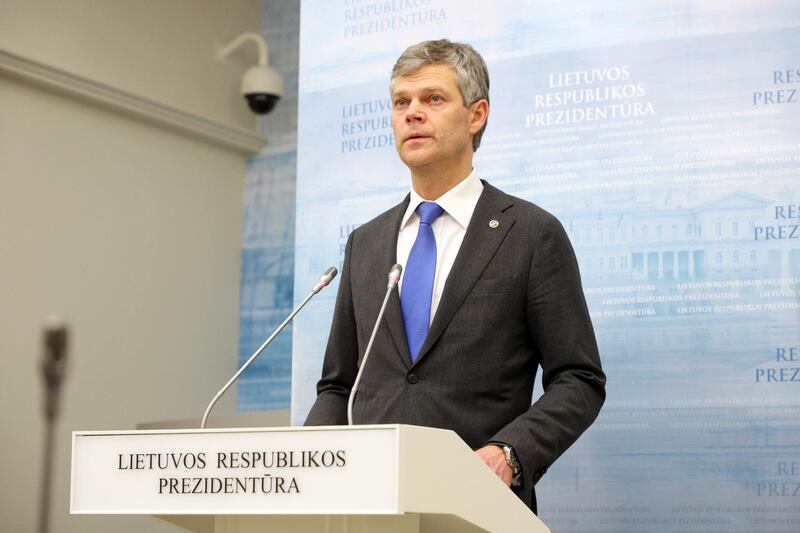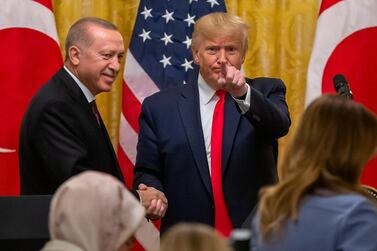Russia returned two Lithuanians and a Norwegian convicted of espionage to Vilnius on Friday while NATO and EU member Lithuania freed two Russians jailed for spying in an exchange reminiscent of the Cold War.
Tensions between Lithuania and Russia grew after the outbreak of the Ukraine crisis in 2014, triggering a string of espionage allegations on both sides.
Lithuanian President Gitanas Nauseda first pardoned the two Russians jailed by Vilnius for spying, prompting Moscow to announce it would respond in kind.
"Today, at midday, the exchange operation was completed successfully," Lithuanian intelligence chief Darius Jauniskis told reporters in Vilnius on Friday.
"Lithuanian citizens Yevgeny Mataitis and Arstidas Tamosaitis and Norwegian citizen Frode Berg successfully returned to Lithuania," he said, adding that Mr Berg was then transferred to the Norwegian embassy in the Lithuanian capital.
Mr Jauniskis said Lithuania handed over the two pardoned Russians, Nikolai Filipchenko and Sergei Moisejenko, in the exchange at a Lithuanian border crossing with the Russian exclave of Kaliningrad.
Russia's SVR foreign intelligence agency director Sergei Naryshkin had told news agencies that Moscow would take "reciprocal measures" following Lithuania's pardon.
Both Russians were sentenced by Lithuanian courts in 2017.
Norwegian Prime Minister Erna Solberg hailed Mr Berg's release and thanked Lithuania for its "cooperation and efforts" in securing his freedom.
"There was nothing offered in return" on Norway's part, she told reporters in Oslo, instead attributing his release to the friendship between her country and fellow NATO member Lithuania.
"He will return to Norway as soon as practically possible," she added.
Mr Berg, a pensioner who once worked as a border inspector, was detained in Moscow in 2017.
In April, he was found guilty of spying on Russia's nuclear submarines and sentenced to 14 years in a strict-regime penal colony.
Mr Berg admitted to acting several times as a courier for the Norwegian intelligence service but said he thought he was only carrying money, and denied the espionage charge.
Mr Nauseda's decree said the Russians were pardoned in line with a new law on spy swaps.
Lithuanian officials said Mr Filipchenko worked for the FSB Russian federal security service and was trying to recruit senior officials in the Baltic state.
He was sentenced to 10 years behind bars and did not appeal.
Mr Moisejenko was jailed for 10 years and six months after a court ruled he recruited a Lithuanian army captain who served at the country's Siauliai military air base. He had pleaded innocent.
The two Lithuanians were sentenced in Russia for allegedly sharing Russian military intelligence with Lithuania.
Lithuania is not the only Baltic state to have participated in a spy swap in recent years, Estonia and Russia exchanged convicted spies last year.
Russia also freed Estonian officer Eston Kohver in a Cold War-style bridge handover in 2015.






